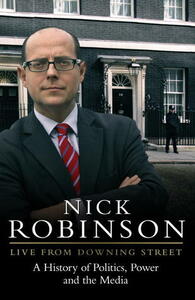Take a photo of a barcode or cover
I'd say more 3.5 stars - very much a book of two halves. 4 stars for the first half and the history of the press and parliament/government relationship but a lower mark for the second half which looks at Robinson's own views and his clear hatred for Gordon Brown.
